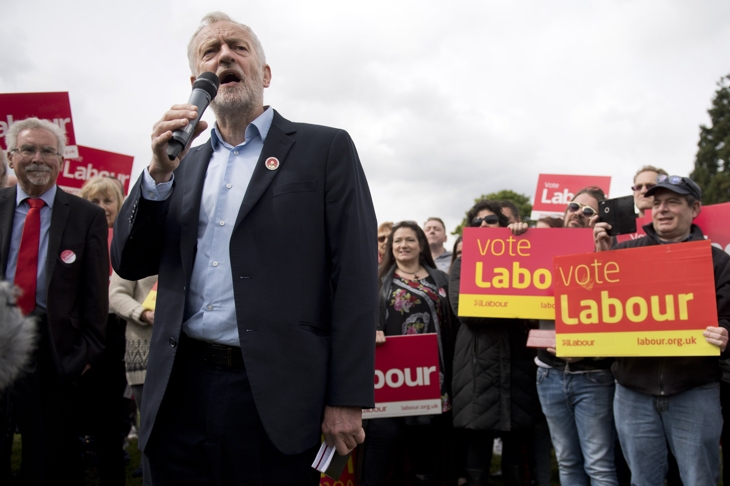Why is it so striking that Tony Blair has said that Theresa May will be Prime Minister ‘if the polls are right’? On the surface, this appears to be a statement of the bleeding obvious, given the Tory party national poll lead isn’t exactly within the margin of error. Of course, around election time, politicians do develop the amazing ability to argue that the earth can in fact be flat, and in a normal election Blair might be focusing on talking about how Jeremy Corbyn can in fact become Prime Minister. His refusal to do that may have mildly surprised people.
Of course, what the former Prime Minister is really up to is trying to help his moderate colleagues still in Parliament who are arguing that Labour cannot win the election in a desperate attempt to save their seats. The Conservatives are trying to talk up Jeremy Corbyn as a potential Prime Minister to scare voters. But in Labour seats, the MPs who in normal circumstances would be selling their leader are trying to contradict that Tory message by saying their party won’t get into government. Many are doing this on the quiet, while some, such as Ben Bradshaw, have gone so far as to put on the record. Their argument goes that it’s safe to elect a Labour voice locally as nationally their party won’t have a chance of implementing all the things that the Tories say it would on defence, spending and so on.
This is how Blair put the strong opposition argument on Sky News:
‘I think the most powerful argument for Labour in this election – because of the way the polls are, and the way the opinion polls are and the leadership issue – the most powerful argument for Labour is to say it’s important for our democracy that the Government is held to account and needs a strong opposition.’
So to recap, the Tories want to talk as much as possible about Jeremy Corbyn as Prime Minister. Labour MPs and Tony Blair want to insist that their party leader is not going to be Prime Minister and Labour won’t form a government after 8 June. If this doesn’t seem totally topsy-turvy and confusing, then you’re not paying attention.
Corbyn, meanwhile, is conducting an election as any leader with as big a mandate as he has should, by visiting seats that the party hopes to win in order to form a government. He was in Harlow today, and while the ridicule focused on his spinners turning him around so he faced the cameras rather than having his back to them as he spoke to a crowd, it might be fair to say that a more ridiculous image is that of a Labour leader whose existing MPs are peering into the abyss standing in a seat he thinks his party can gain. But given so many of those MPs are trying to avoid the abyss by running campaigns that are all about them, not their party leader, Corbyn might find that invitations to campaign in Labour-held seats are reasonably thin on the ground anyway.
So a seats strategy in which he focuses on seats he would like to win while his MPs focus on persuading their electorate that he can’t win those seats and form a government might be the best contorted way of approaching this election. The greater difficulty, of course, comes when the party is divvying up funding for seats, with a tension between those who want to pour resources into saving as many existing Labour MPs as possible, and those who think the party should be aiming to make gains.
So as ever, Labour is split, this time on its election strategy. The question is whether it can find a way of the two strategies in the party coexisting so that there still is a Labour party big enough to continue enjoying splits after 8 June.







Comments